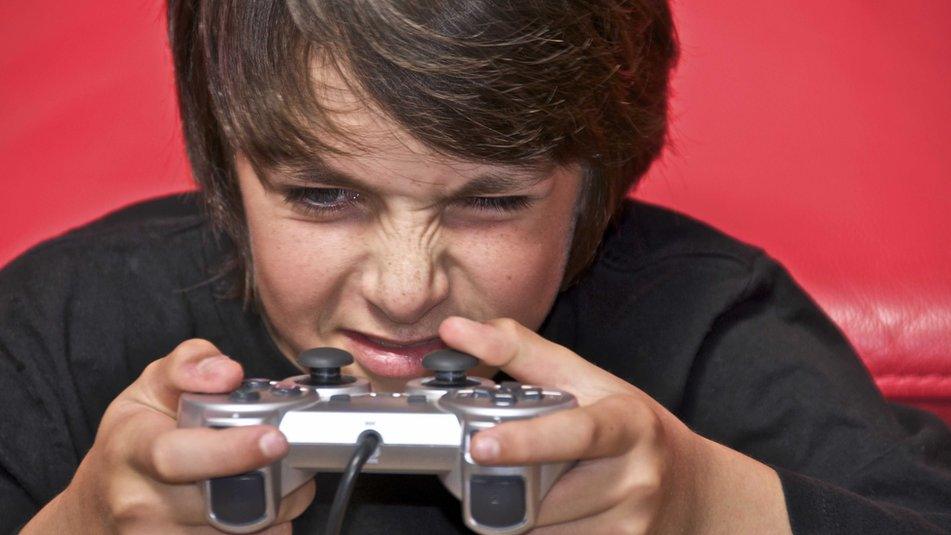Gaming: China limits video game time for children
- Published
- comments
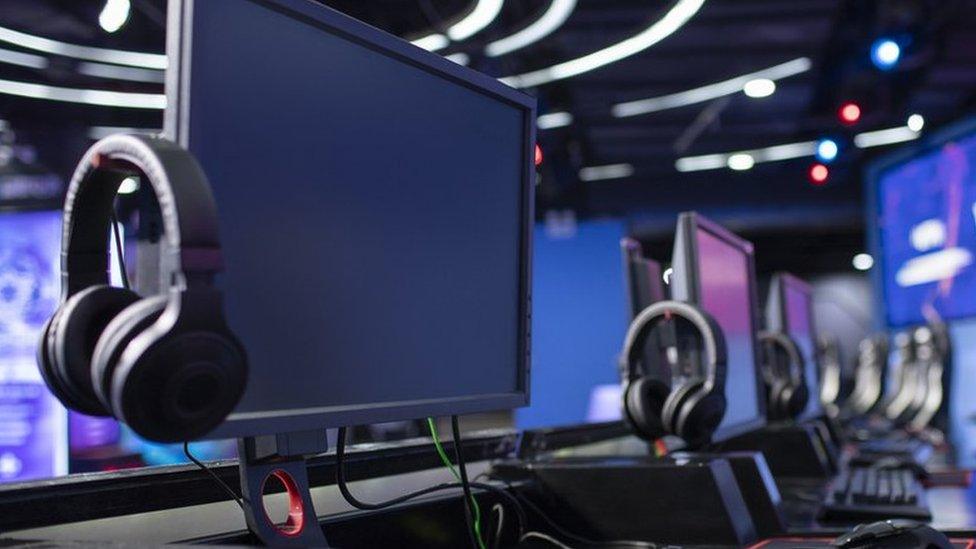
Young people often play online games at an internet cafe
China has brought in new rules to limit the amount of time children can spend playing video games.
There were already strict limits on how long under 18s could access online games. In 2019, children were restricted to playing games for up to three hours during holiday periods or 1.5 hours on other days.
This has now been further reduced - down to one hour on Fridays, weekends and holidays.
The news was reported by the Xinhua news agency on Monday, and the restrictions apply to all devices including phones.
The rules, published by the National Press and Publication Administration, said users under the age of 18 would only be able to play games from 8pm to 9pm local time on those days, and on public holidays.
If you can't see the vote, click here.
The change is thought to be a reaction to growing concern about gaming addiction among young people.
A National Press and Publication Administration (NPPA) spokesperson was quoted saying, "teenagers are the future" and that "protecting the physical and mental health" of children is a vital interest.
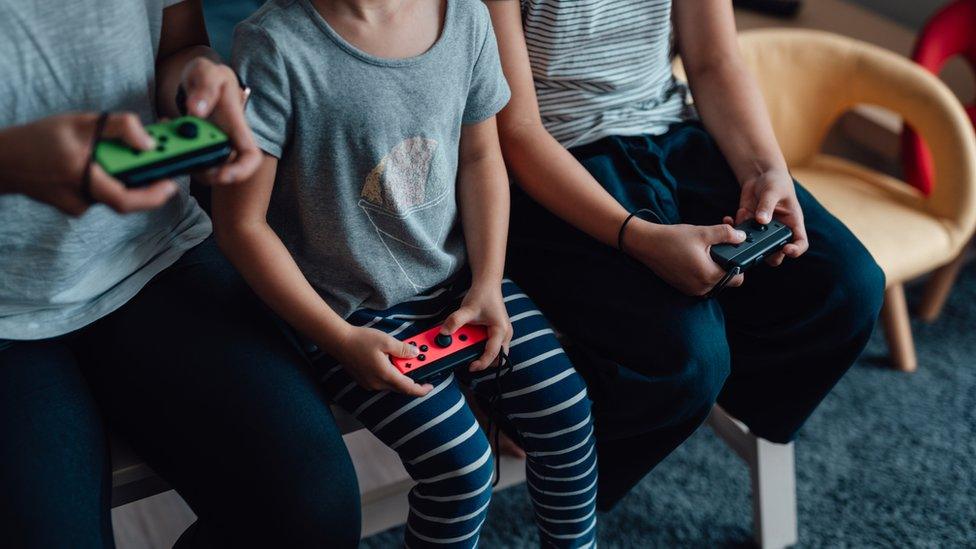
The NHS says these are some signs someone could be addicted to gaming:
Constantly thinking about or wanting to play the game
Feeling irritable and restless (fidgety) when not playing
Underreporting or lying about how much time you've spent playing or playing in secret (such as in the middle of the night)
Tiredness, headaches or hand pain from too much screen time and use of controllers
Not wanting to pay attention to things like your personal hygiene (e.g., washing) or eating
Not seeing friends as often or doing other things you used to enjoy doing as all your time is spent gaming
Not wanting to go to school so that you can game.
Companies will also have to take steps to make sure children aren't able to get around the rules by pretending to be older than they really are.
This means putting things like real name verification systems in place, where someone's name is checked against records to ensure it is accurate.
The NPPA regulator said it would increase how often and and intensely it carries out inspections for online gaming companies, and will make sure they are putting time limits and anti-addiction systems in place.
It also said that parents and teachers should play key roles in curbing gaming addiction.
How big a problem is gaming addiction?
The issue of gaming addiction is something people have become more aware of in recent years, with the World Heath Organization (WHO) officially listing 'gaming disorder' as an illness.

In countries like China and South Korea it has proven to be a particularly big problem.
It's not just gaming that's a problem either. In those countries it is claimed that lots of young people are also addicted to the internet.
In 2019 Newsround spoke to 17-year-old Hawon about her YouTube addiction.
WATCH: 'I spent 18 hours a day watching YouTube'
In some areas special military-style camps have been set up, where parents can send their children to help them to handle their gaming addictions.
But these camps have been criticised for using extreme discipline and harsh punishments.
But the new restrictions on gaming in China will be among the world's harshest.
- Published28 May 2019
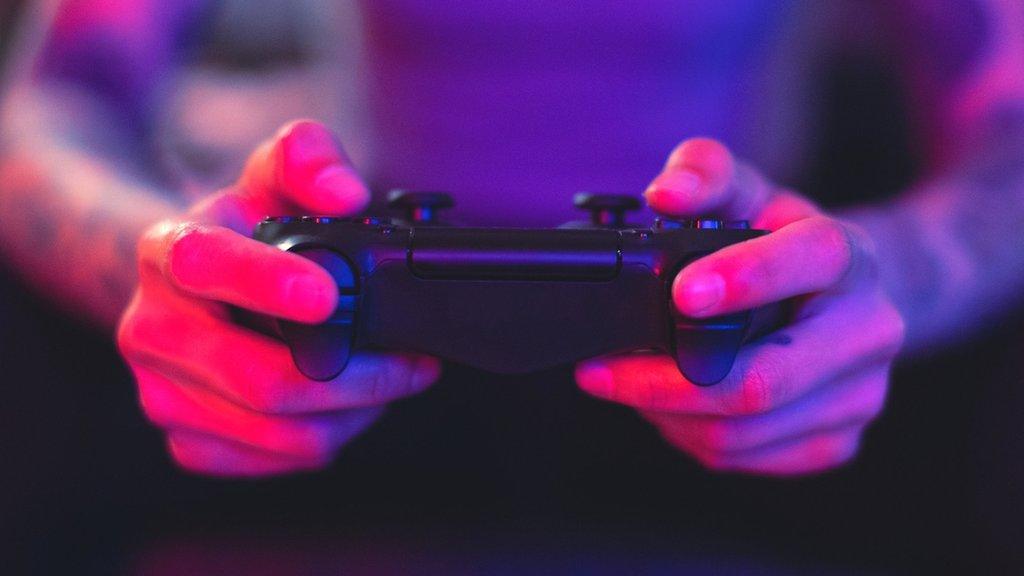
- Published8 October 2019
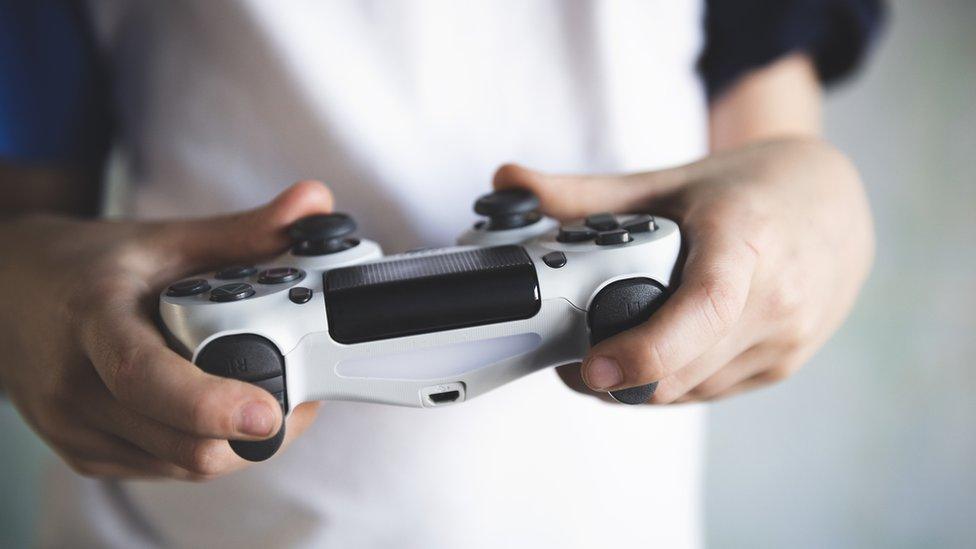
- Published8 November 2018
